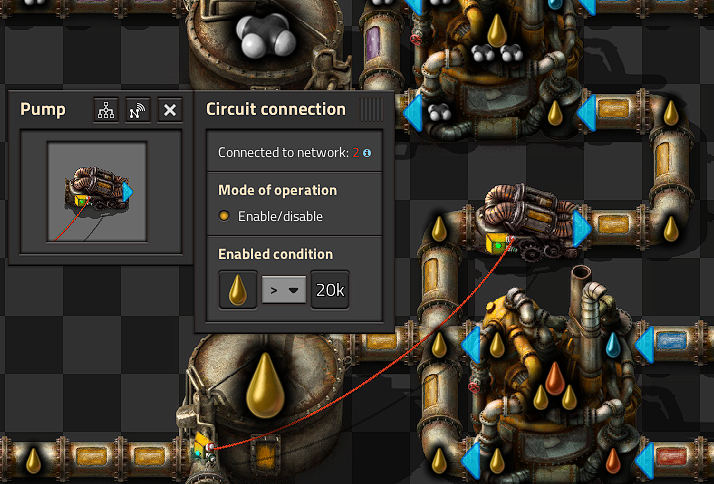Tutorial:Circuit network cookbook: Difference between revisions
Jump to navigation
Jump to search
| Line 6: | Line 6: | ||
== Oil Setups == | == Oil Setups == | ||
=== Light Oil Cracking === | === Light Oil Cracking === | ||
This circuit provides balanced light oil and petroleum gas production by cracking excess light oil into gas. | This circuit provides balanced light oil and petroleum gas production by cracking excess light oil into gas. The Small pump is connected to the Storage tank by a Red Wire, the small pump has an enabled condition set to 'Light Oil > 2000'. | ||
[[File:LgtOilCracking.png]] | [[File:LgtOilCracking.png]] | ||
=== Heavy Oil Cracking === | === Heavy Oil Cracking === | ||
Revision as of 12:39, 21 November 2016
Introduction
WORK IN PROGRESS!!
This page provides examples of simple circuit network designs that others can use, combine and modify. They are designed to be as easy to understand as possible.
Oil Setups
Light Oil Cracking
This circuit provides balanced light oil and petroleum gas production by cracking excess light oil into gas. The Small pump is connected to the Storage tank by a Red Wire, the small pump has an enabled condition set to 'Light Oil > 2000'.
Heavy Oil Cracking
This circuit extends on the previous circuit by adding heavy oil cracking to provide lubricant as well.
Petroleum split evenly between plastic and sulphuric acid
This circuit buffers gas in the tank until there is at least 100, then it lets the tank drain until there is less than 50 and the cycle repeats.
